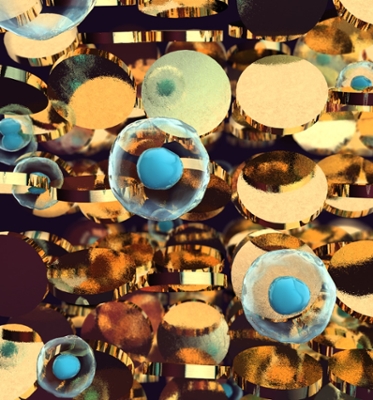
Formation of new blood vessels, a process
The team is led by members of the Inspired Nanomaterials and Tissue Engineering Lab in the Department of Biomedical Engineering. They have developed technology that introduces a new type of two-dimensional clay, also known as
"Clay nanoparticles work like tiny weak magnets that hold the growth factors within the polymeric hydrogels and release very slowly," Gaharwar said. "Sustained and prolonged release of physiologically relevant doses of growth factors are important to avoid problems due to high doses, such as abrupt tissue formation."
Co-investigator Dr. Kayla Bayless from the Department of Molecular and Cellular Medicine in the Texas A&M College of Medicine said the clay also keeps the growth factors organized, preventing abnormal growth and moderating activity of surrounding cells.
Gaharwar said by establishing clay nanoparticles as a platform technology for delivering the growth factors, the research will have a significant impact on designing the next generation of bioactive scaffolds and implants.
The research was recently published in Advanced Biosystems and is funded by the Division of Chemical, Bioengineering, Environmental and Transport Systems of the National Institute of Science, the National Institute of Biomedical Imaging and Bioengineering of the National Institutes of Health and by the National Science Foundation.